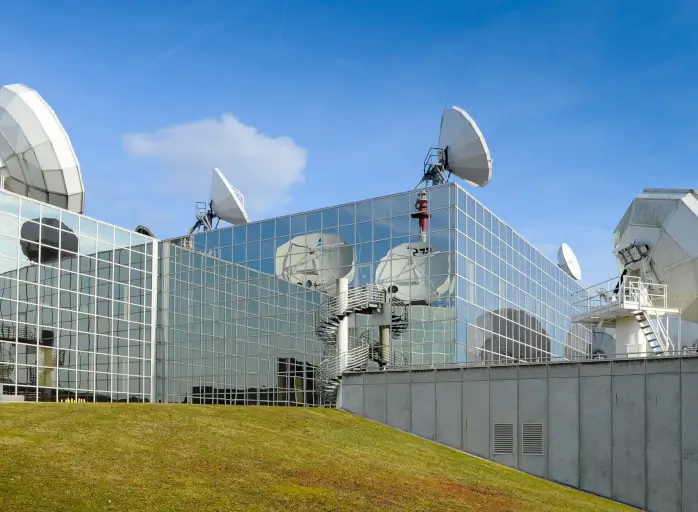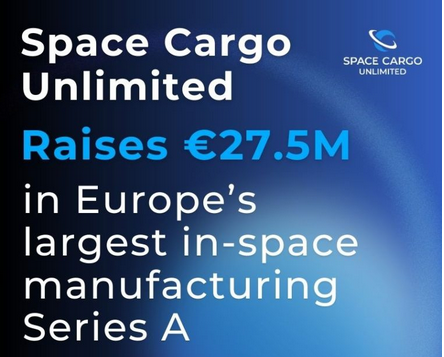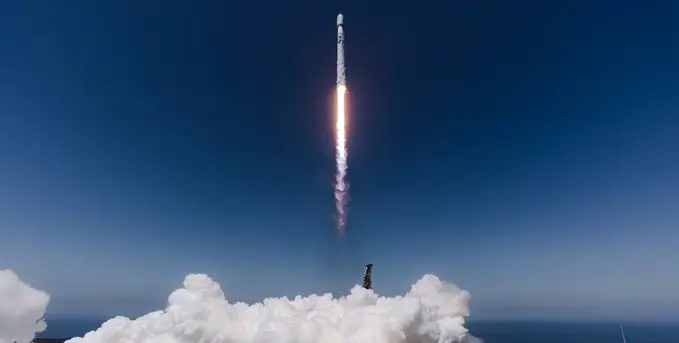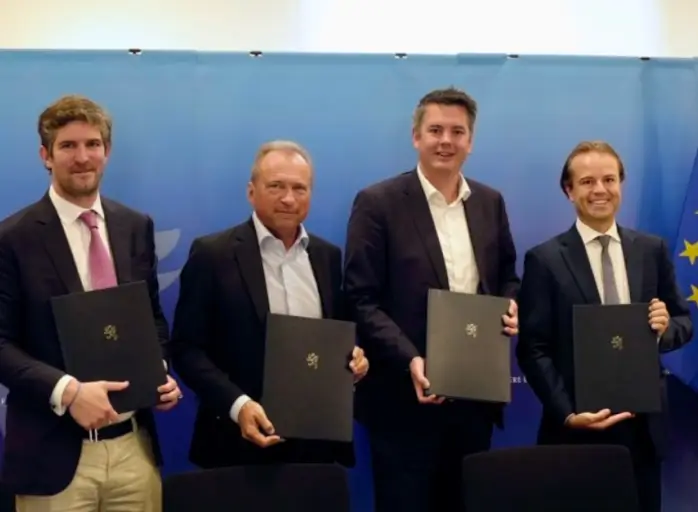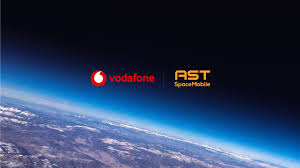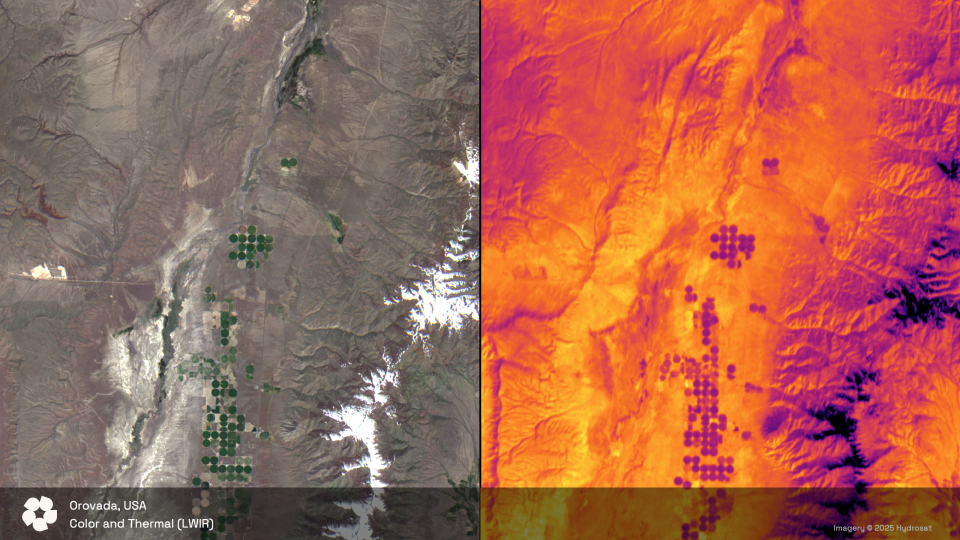
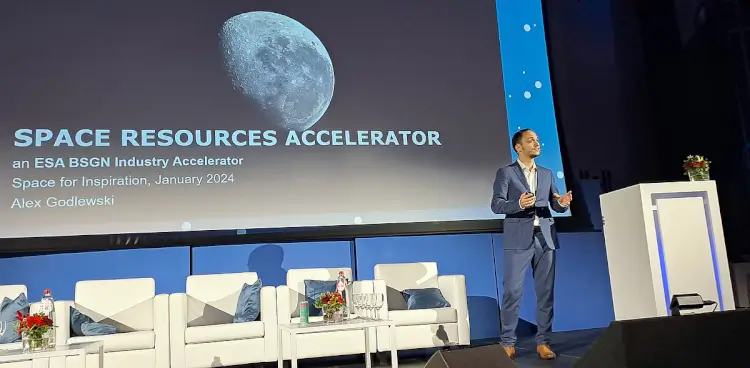
Space Resources Accelerator: ESRIC leads historic lunar initiative
Luxembourg-based European Space Resources Innovation Centre has been entrusted with conceptualising the world’s first business accelerator for the lunar economy.
 Abigail Okorodus
Abigail Okorodus
Located in Luxembourg, the European Space Resources Innovation Centre (ESRIC) is the world’s first innovation centre entirely dedicated to space resources. The centre which already set a record of developing the first-ever space resources start-up support programme, has now been tasked by the European Space Agency (ESA) with conceptualising a Space Resources Accelerator, the world’s first business accelerator devoted to the lunar economy, in collaboration with a network of partners.
With the new Space Resources Accelerator, ESRIC will provide a pathway for partners with commercial projects to accelerate their activity in this dynamic and forward-facing field.
The programme aims to support scale-ups with proven business models in terrestrial and space markets with the capacity to develop applications for the emerging lunar economy. Currently in the conceptualisation phase, this new accelerator presented at the ESA’s annual conference in the Netherland, is scheduled for implementation in 2025. ESRIC is inviting partners to join this new effort in the coming months.
“In 2021, ESRIC launched the Start-up Support Programme, the world’s first incubator programme entirely dedicated to early-stage ventures in the space resources domain. With the new Space Resources Accelerator, ESRIC will provide a pathway for partners with commercial projects to accelerate their activity in this dynamic and forward-facing field. Extensive research capabilities and state-of-the-art facilities make ESRIC an international centre of excellence and a leader in the field of space resources,” explains Kathryn Hadler, Director of ESRIC.
Space resources exploration, commercial opportunities
Investments in lunar-related activities and missions are expected to increase in the coming decade. PwC experts value the lunar economy at €170 billion, with up to 2 million people likely to be employed over the next 15 to 20 years. The lunar economy, along with bigger space exploration operations, is expected to offer new innovations, economic opportunities, and spill-over effects in numerous industries.
We aspire to build today with ESA the success stories of tomorrow.
“50 years ago, portable computers, camera phones and wireless headsets did not exist and yet all these products have been invented by space agencies to support space exploration, eventually becoming the products we know today. Our accelerator precisely aims to enable such innovations to come to life from public-private partnerships. We aspire to build today with ESA the success stories of tomorrow,” mentions Alexander Godlewski, Business Accelerator Officer – Space Resources at ESRIC.
Francesco Liucci – Innovation Management Officer at ESA explains that “supporting commercial projects” is a key step in building a sustainable lunar economy. “The aim is to bring such projects to terrestrial demonstration in markets that are already available on Earth today and ultimately to the Moon. The model that we are proposing provides the right balance. ESA will make available funding to support the growth of commercial solutions that are supported by credible business cases, allowing to bring on-board private investors to support these ventures.”
Open to a wide range of partners
The Space Resources Accelerator seeks to attract institutional partners that are willing to collaborate with the private sector, as well as strategic partners who want to strengthen their innovation roadmap to address new challenges facing space agencies. In addition, a fundamental ambition is to develop public-private collaborations and provide a platform for investors to finance “Moon champions of tomorrow”.
The lunar economy offers an exciting environment to experiment with various technologies.
“In a context in which fundraising is particularly challenging, we are building a win-win ecosystem whereby scale-ups can secure public funding while sustaining space exploration efforts resulting in innovations. This endeavour would also bring solutions to the Moon and back to Earth, thus attracting private investors. The lunar economy offers an exciting environment to experiment with various technologies, and we are looking forward to working alongside our future partners and support the next Moon trailblazers,” says Mr Godlewski.
From 25 to 27 March 2024, ESRIC will organise the 6th edition of the Space Resources Week, an event that brings together a wide range of industry stakeholders in Luxembourg and online. This year’s theme: Shaping global priorities and coordinating efforts to advance space resource utilisation towards cleaner space activities beyond exploration.
Photo credit: ESRIC


